Life
-
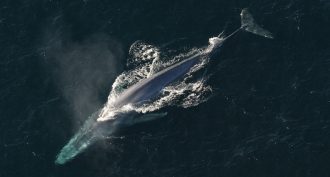 Animals
AnimalsA whale of a journey
The 5,200-kilometer (3,200 mile) journey of Isabela provides a window into the migration patterns of blue whales.
-
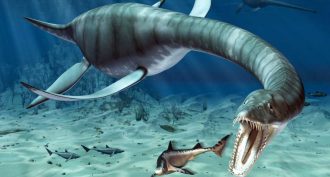 Fossils
FossilsThe real sea monsters
No known dinosaurs lived in the oceans. But there were lots of big aquatic reptiles that were every bit as ferocious and awesome.
By Sid Perkins -
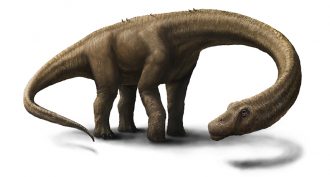 Fossils
FossilsNew analysis halves massive dino’s weight
No question about it, Dreadnoughtus schrani was enormous. But a new estimate concludes this dino weighed just half as much as first thought.
By Meghan Rosen -
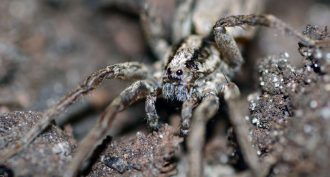 Animals
AnimalsThese spiders can purr
This wolf spider can purr like no other. It makes vibrations and sounds to tell a female he’s interested in her.
By Karl Gruber -
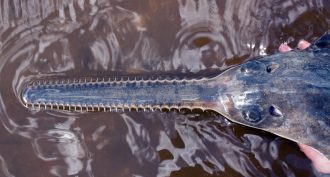 Animals
AnimalsThis endangered species gives new meaning to ‘single mom’
Scientists have found DNA evidence that in the wild, sawfish have produced offspring without mating. That’s a first for an animal with a backbone.
-
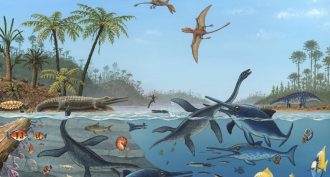 Fossils
FossilsThat’s no dino!
Not all ancient reptiles were dinosaurs. Some soared, many swam the seas and still others looked like dinos—but actually weren’t.
By Sid Perkins -
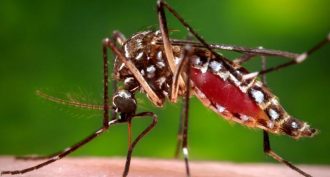 Health & Medicine
Health & MedicineA germ stopper for blood products
A new system can disable almost all viruses or bacteria that are lurking in donated blood platelets and plasma.
By Tara Haelle -
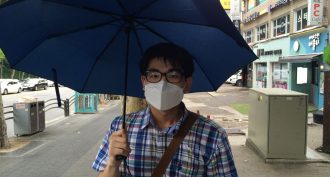 Health & Medicine
Health & MedicineMERS virus hits South Korea hard
MERS — a killer viral disease — emerged for the first time only three years ago. That was in the Middle East. Now it has spread to Asia.
-
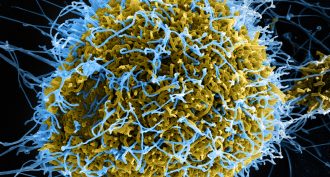 Life
LifeExplainer: What is a virus?
Viruses cause many of the world’s common diseases. These germs reproduce by hijacking the cells of their host.
-
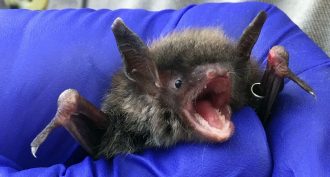 Animals
AnimalsBiowarfare saves bats from killer fungus
Good news for bats. Those infected with white-nose syndrome may be cured by a brief exposure to fumes from therapeutic bacteria.
-
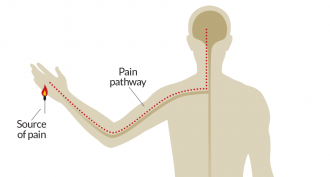 Genetics
GeneticsAltered gene leaves people totally painfree
That’s not a good thing for these people. Still, it could lead to a new class of drugs to help people who now suffer from chronic pain.
-
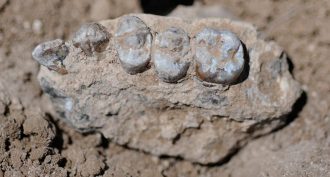 Fossils
FossilsFossil find adds a relative to our family tree
Lucy is the best known of our early ancestors. Now, a new fossil from Ethiopia suggests a second pre-human species lived alongside her kind.
By Bruce Bower